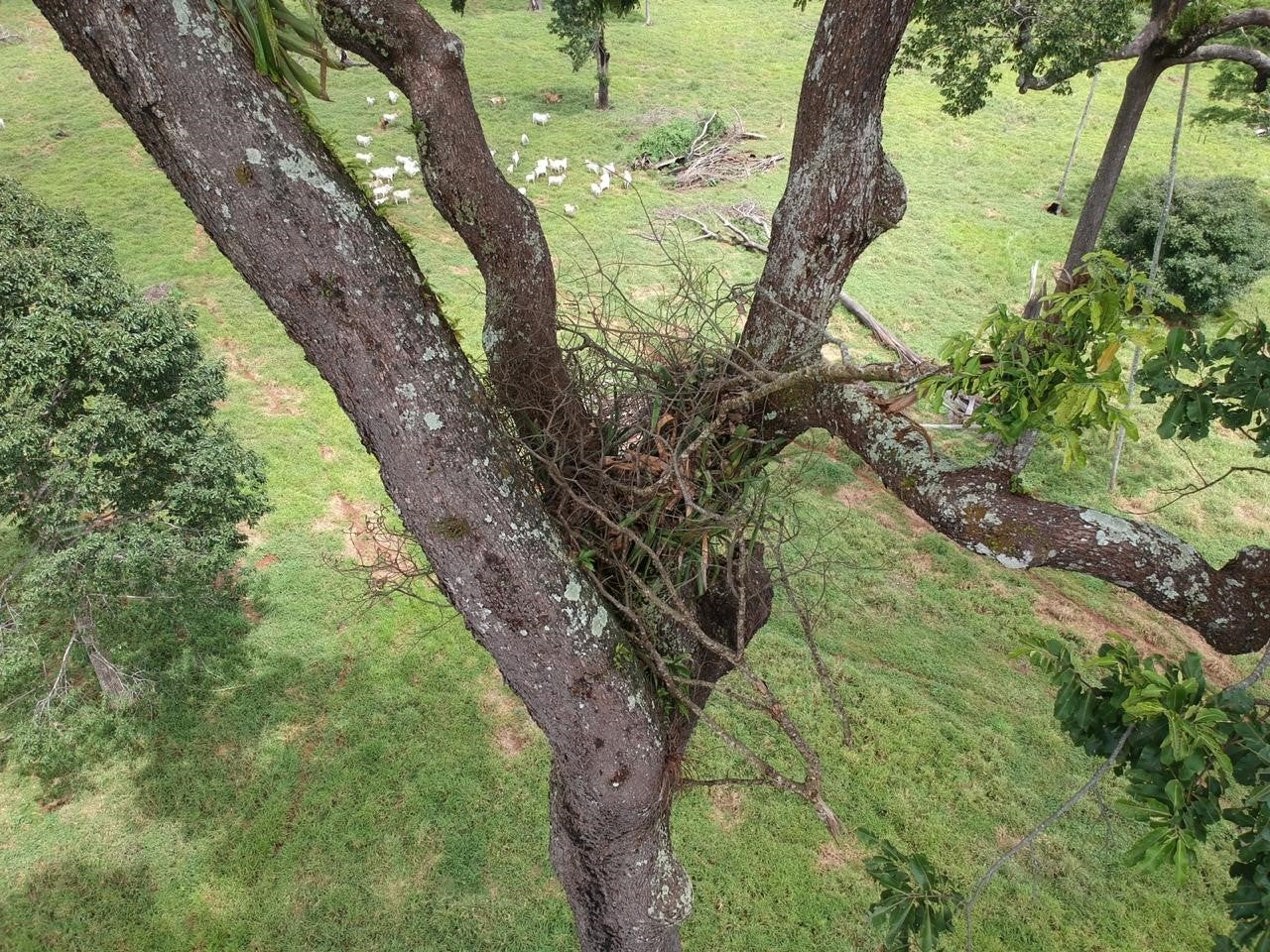Deforestation causing young of world’s largest eagle to starve, study says
Researchers recorded three harpy eaglets dying of starvation in areas with high levels of deforestation

Your support helps us to tell the story
From reproductive rights to climate change to Big Tech, The Independent is on the ground when the story is developing. Whether it's investigating the financials of Elon Musk's pro-Trump PAC or producing our latest documentary, 'The A Word', which shines a light on the American women fighting for reproductive rights, we know how important it is to parse out the facts from the messaging.
At such a critical moment in US history, we need reporters on the ground. Your donation allows us to keep sending journalists to speak to both sides of the story.
The Independent is trusted by Americans across the entire political spectrum. And unlike many other quality news outlets, we choose not to lock Americans out of our reporting and analysis with paywalls. We believe quality journalism should be available to everyone, paid for by those who can afford it.
Your support makes all the difference.Deforestation is causing the young of the world’s largest eagle to starve, a new study finds.
The harpy eagle, an apex predator of the skies above the Amazon rainforest, relies on forest cover to catch its preferred prey of two-toed sloths, as well as other small animals such as brown capuchin monkeys, grey woolly monkeys and green iguanas.
However, the birds are struggling to find enough food to successfully raise their offspring amid high levels of deforestation in Brazil’s Mato Grosso region, according to the research.
Researchers tracked the feeding habits of 16 eagle pairs using a combination of camera monitoring and surveys of bone fragments left at the nest.
The scientists found that the rate at which eagles feed their offspring is lower in areas with high levels of deforestation.
In landscapes with no deforestation, eagles delivered around 0.69kg of food to their offspring each day, the research says. However, in areas where 50 per cent or more of the forest had been lost, eagles delivered just 0.11kg of food each day.
The researchers also recorded three eaglets dying of starvation in areas where levels of forest loss were higher than 50 per cent.
“Harpy eagles evolved in a forest environment millions of years ago, and this is what they have always known,” Prof Carlos Peres, a conservation biologist at the University of East Anglia, told The Independent. Prof Peres is a co-author of the study, which is published in the journal Scientific Reports.
“They are morphologically and behaviourally designed to hunt tree-dwelling mammals and, unlike countryside eagles like golden eagles, they cannot effectively hunt in a non-forest environment like cattle pastures.”
Deforestation in the Amazon’s Matto Grosso region is largely driven by cattle ranching and the production of soybeans, which are mainly grown to produce feed for livestock.
Based on their findings, the researchers conclude that harpy eagles are unable to breed successfully in areas where forest loss is greater than 50 per cent.
This means that around 35 per cent of the Matto Grosso region is no longer able to support breeding harpy eagles as a result of deforestation, the authors estimate.

The range of harpy eagles has already declined by 41 per cent globally since the 19th century and the Amazon represents “their last stronghold”, the authors say in their research paper.
In addition to habitat loss, the birds also face threats from poaching and conflict with humans, they add. Harpy eagles are considered to be the largest eagle by mass, with female birds typically weighing in around 7.3kg.
The death of eaglets is particularly concerning given that the animals rarely breed, said Prof Peres. Harpy eagles can live for up to 54 years and typically breed once every 30 to 36 months, raising just a single eaglet.
“Considering that harpy eagles have the slowest life cycle of all bird species, their chances of adapting to highly deforested landscapes are nearly zero,” said Prof Peres.
“Retaining forest connectivity, translocating juveniles and food supplementation to eaglets could become critical if they are to persist in these human-modified landscapes.”
In addition to driving the loss of unique species, tropical deforestation currently accounts for around 8 per cent of all human-caused CO2 emissions.
A landmark report released earlier this month warned that the world’s two major threats of the climate crisis and nature loss must be tackled together if either are to be solved. Stopping deforestation and rewilding lost habitats will be key to tackling both crises, the scientists said.
Join our commenting forum
Join thought-provoking conversations, follow other Independent readers and see their replies
Comments